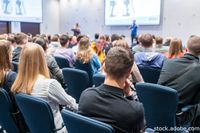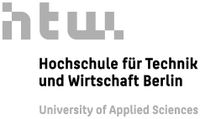Academic teaching and education on BIPV
Educating future architects, engineers and planners to become building professionals who know, use and further develop the design and technical potential of building-integrated photovoltaics is another important mission that we want to implement together with partners from the fields of architecture and renewable energies at various universities. Since the summer semester of 2021, we are therefore organizing various series of lectures as well as excursions on BIPV together with the HTW Berlin, the University of Kassel, and other educational institutions.
Master's program in Renewable Energies
Lecture "Building-integrated Photovoltaics"
in cooperation with Prof. Rutger Schlatmann
Students of renewable energies gain a comprehensive insight into a wide range of topics relating to building-integrated photovoltaics. Excerpts from the curriculum:
- Introduction to BIPV
- Political and economic framework conditions
- Building science and the applications of PV in roofs and facades
- Planning and implementation
- System technology and yield simulations
- Fire protection and building law
- Architectural design and drafting
- Energy-efficient building concepts
- Sustainability, recycling, economic efficiency
During the semester, excursions (e.g. BIPV-tour at the WISTA campus in Berlin-Adlershof or the Living Lab for BIPV of the HZB) are carried out.
Bachelor's and Master's program in Architecture and Product Design
Vertical Studio "SolarArchitecture21"
in cooperation Prof. Heike Klussmann and Frederik Ecke
Architecture and product design students at the University of Kassel work on the specific task of solar activation of a building envelope on the University of Kassel campus. BKE, BAIP/HZB and selected experts are supporting the project as advisors and input providers.
Students have the opportunity to design innovative, sustainable concepts for decentralized energy generation through BIPV. The project aims to provide space to question existing conventions and explore the opportunities and limitations of solar materials. The interplay of design possibilities and functional-constructive solutions will be examined both analog and digitally using simulations, models and mock-ups. At the end of the semester, the work processes and results will be presented digitally and analog in the form of simulations and models.


